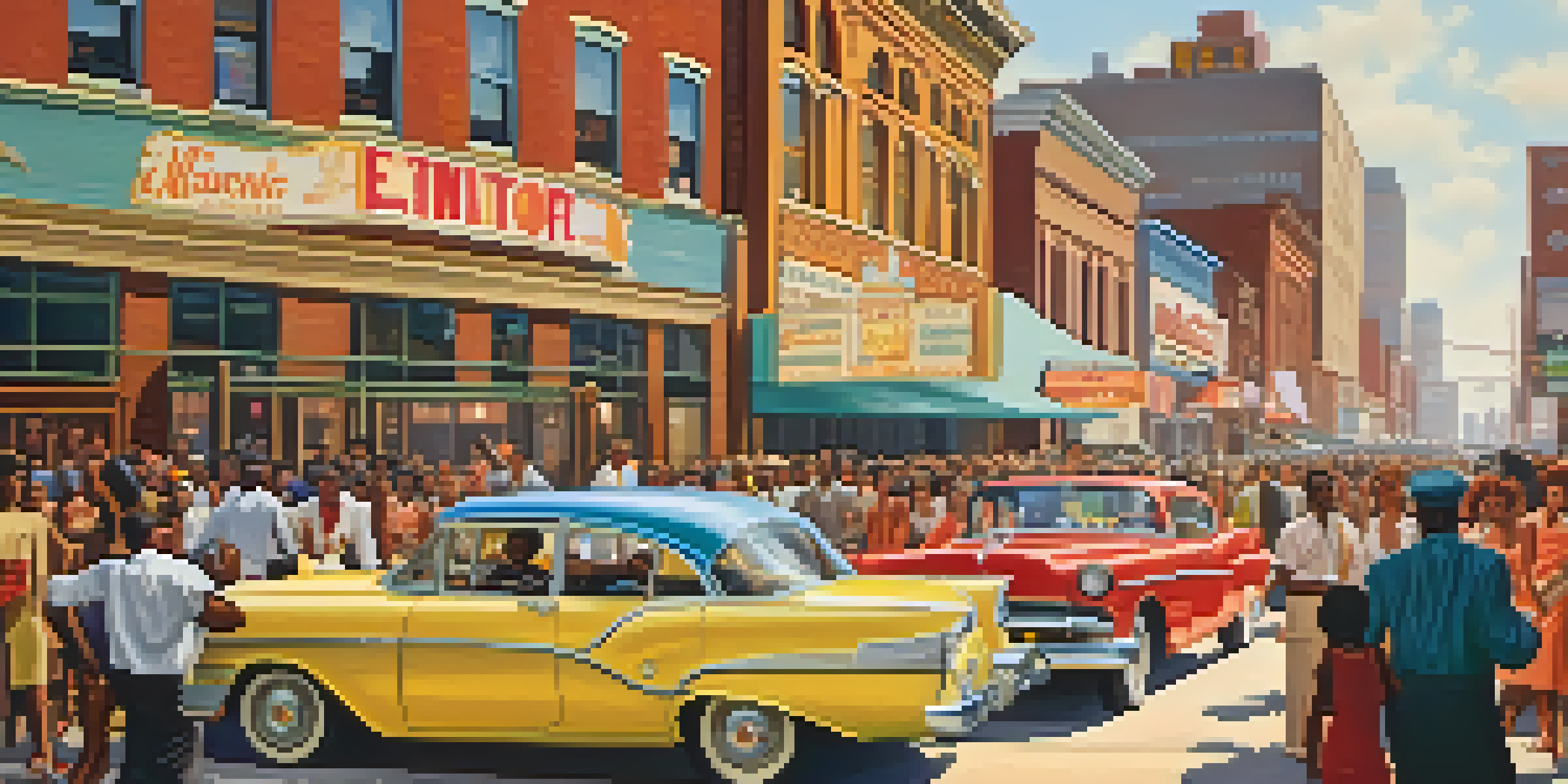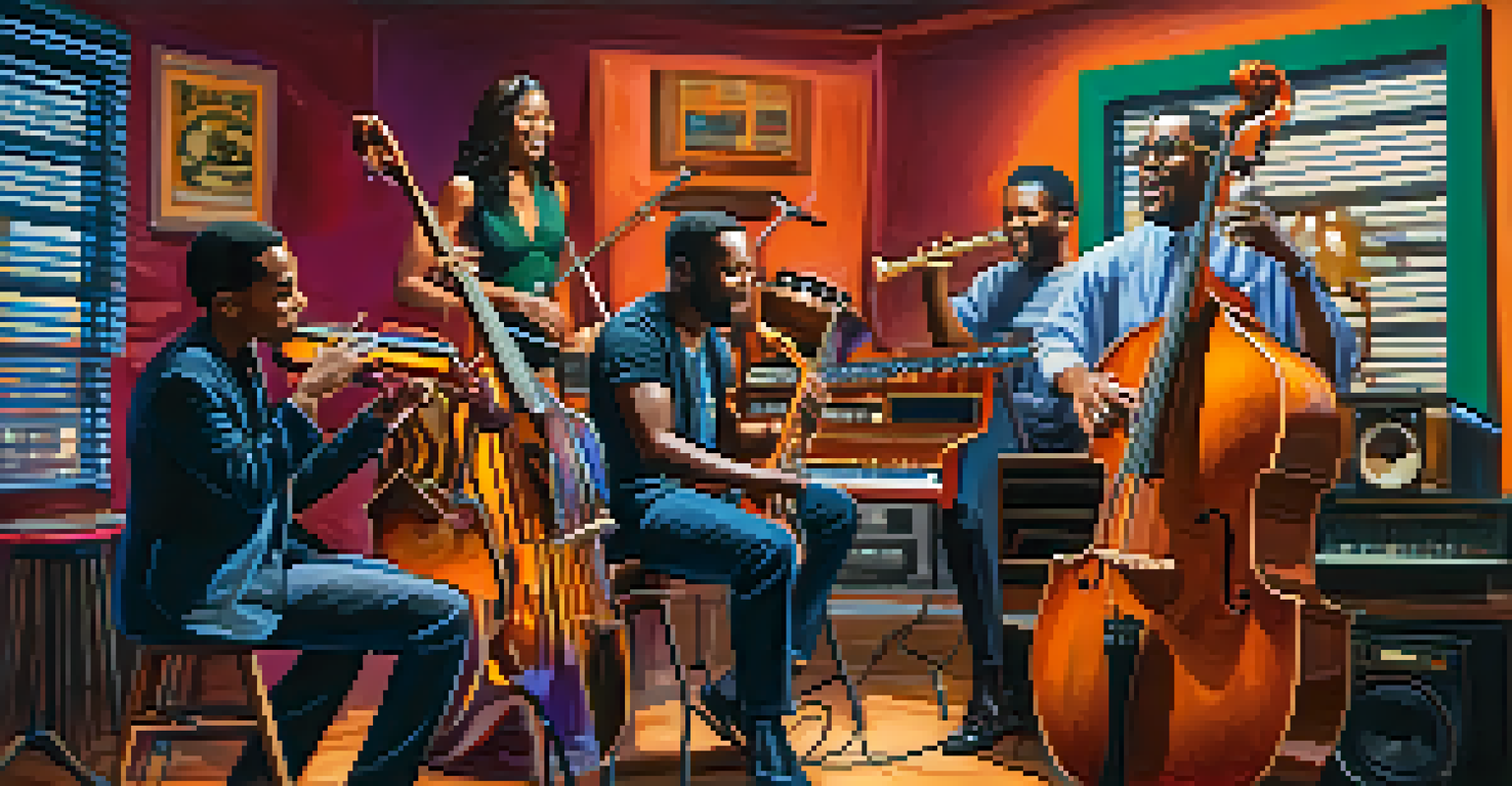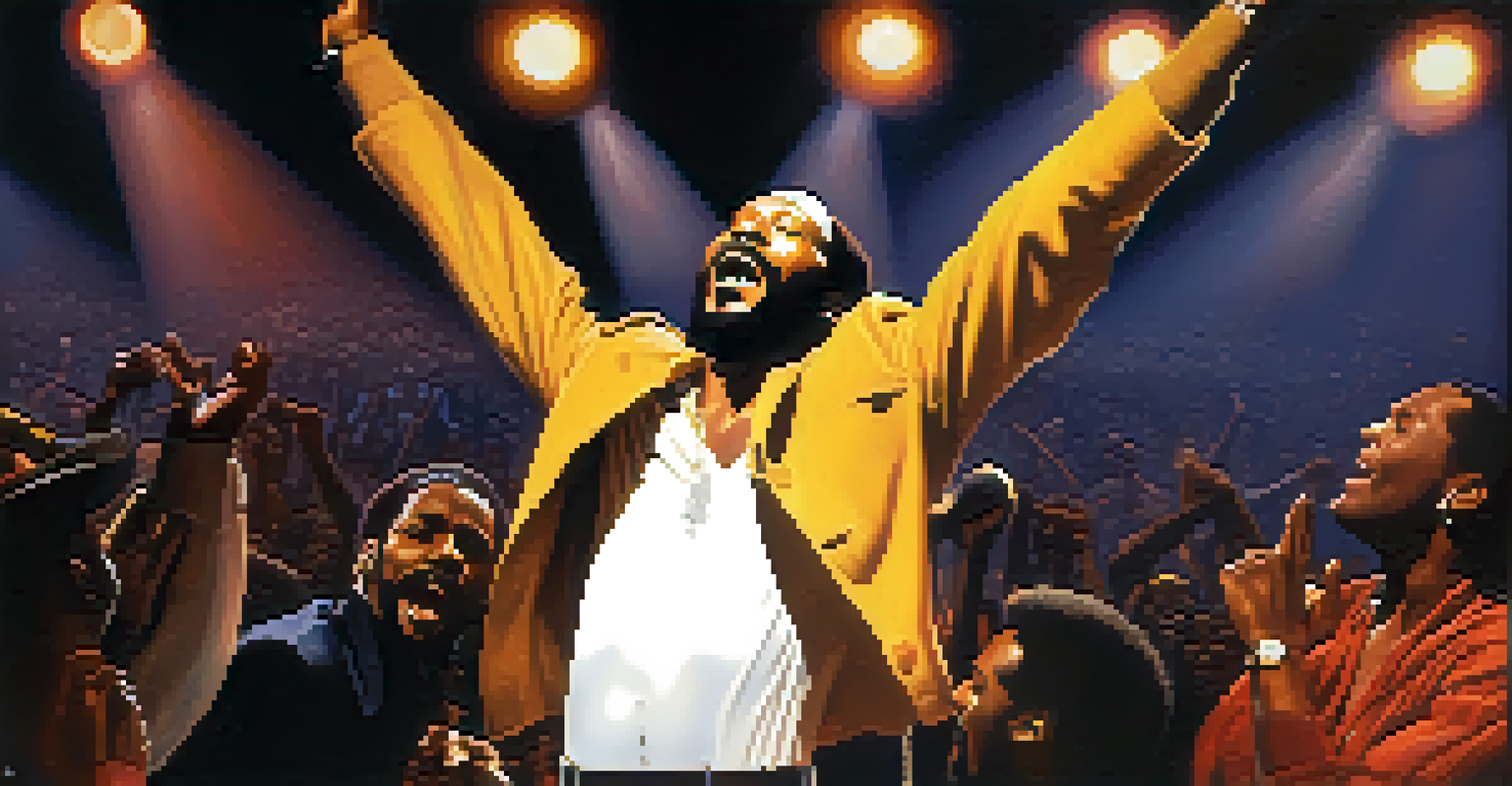The Legacy of Motown: How Detroit Shaped Global Pop Music

The Birth of Motown: A Musical Revolution in Detroit
In the late 1950s, Berry Gordy Jr. founded Motown Records in Detroit, Michigan, sparking a musical revolution. Motown was not just a label; it was a movement that aimed to bridge the racial divide in America through the universal language of music. By blending rhythm and blues with pop sensibilities, Motown created a sound that was accessible to a broad audience, paving the way for artists of color in the mainstream music scene.
The music is the message. It has always been a message about the dignity of the human spirit.
The early successes of artists like Smokey Robinson and The Miracles, along with the legendary Supremes, showcased this new sound. Their catchy melodies and polished performances captivated listeners and set a high standard for musical artistry. This innovative approach not only contributed to the label's success but also influenced countless musicians worldwide.
As Motown grew, it became a cultural phenomenon, shaping the identity of Detroit as a music hub. This local pride transformed into a global appreciation for the Motown sound, leading to international tours and collaborations that spread the influence of the Detroit music scene.
Innovative Sound and Style: The Motown Formula
Motown's success can be attributed to its unique production style, often referred to as the 'Motown Sound.' This signature style featured a combination of catchy hooks, vibrant instrumentation, and smooth vocal harmonies. Producers like Smokey Robinson and Holland-Dozier-Holland crafted hits that resonated with audiences, creating a template for future pop music.

Additionally, the label emphasized the importance of artist development. Motown's 'artists-as-brands' approach involved rigorous training in performance, style, and public relations, ensuring that artists were not only talented but also marketable. This strategy helped to cultivate iconic figures like Marvin Gaye and Stevie Wonder, who became household names.
Motown's Cultural Impact
Motown played a crucial role in bridging racial divides in America by using music to address social issues during the Civil Rights Movement.
The Motown Sound's impact was felt beyond its artists; it influenced various genres, including rock, soul, and pop. The blending of musical styles paved the way for future artists to experiment with their sound, leading to the rich diversity we see in music today.
Cultural Impact: Motown and the Civil Rights Movement
Motown's influence extended beyond music, playing a significant role in the Civil Rights Movement of the 1960s. The label's artists often used their platforms to address social issues and promote racial equality. Hits like 'What's Going On' by Marvin Gaye became anthems for change, resonating deeply with the struggles of the times.
Motown was a big thing for black people. It was a way to prove that we could do something great.
This alignment with social justice gave Motown a unique place in American history. The music not only entertained but also educated and inspired listeners to take action. Through their lyrics and performances, Motown artists helped to shift public perception of African American culture and brought attention to pressing societal issues.
The connection between Motown and the Civil Rights Movement showcased the power of music as a tool for change. It underscored how art can influence society, making Motown a pivotal part of both musical and cultural history.
The Global Expansion of Motown's Influence
As Motown's popularity surged in the United States, its influence quickly spread around the world. International audiences embraced the Motown sound, leading to a growing fanbase in Europe, Asia, and beyond. This global reach was facilitated by innovative marketing strategies, including international tours and television appearances.
Artists like The Jackson 5 and Diana Ross became global superstars, transcending borders and languages with their music. The infectious rhythm and relatable themes of Motown songs resonated with diverse cultures, fostering a sense of unity through shared experiences. This helped to elevate the genre to a global phenomenon.
Innovative Production Techniques
The 'Motown Sound' revolutionized music production with its catchy hooks and artist development strategies that created lasting pop icons.
Motown's legacy continues to thrive today, with artists across various genres citing it as a major influence. From pop to hip-hop, the essence of Motown can be heard in the music of contemporary artists, further solidifying its place in the tapestry of global music.
The Lasting Legacy of Motown Artists
Many original Motown artists have left an indelible mark on the music industry, inspiring generations of musicians. Icons like Stevie Wonder and Aretha Franklin continue to be celebrated for their contributions, and their influence can be seen in the work of modern artists. The timeless quality of their music transcends eras, proving that great art knows no age.
Moreover, the legacy of Motown goes beyond individual artists; it represents a collective movement that fostered creativity and collaboration. The relationships built within the Motown family encouraged innovation and experimentation, leading to groundbreaking music that has stood the test of time.
Today, Motown's legacy is celebrated through various tributes, including musicals, documentaries, and tribute concerts. These endeavors not only honor the original artists but also introduce new audiences to the Motown story, ensuring that its rich history continues to inspire future generations.
The Evolution of Motown: Adapting to Changing Times
As musical tastes evolved, so did Motown. The label adapted to the changing landscape of the music industry by experimenting with new sounds and artists. In the 1970s and beyond, Motown expanded its roster to include a diverse range of genres, from disco to funk, showcasing its versatility and willingness to innovate.
This evolution allowed Motown to remain relevant in an ever-changing industry. With artists like Lionel Richie and Rick James, the label continued to produce chart-topping hits that resonated with the changing demographics of its audience. This adaptability played a crucial role in its longevity as a record label.
Global Musical Influence
Motown's infectious rhythms and relatable themes led to its global expansion, inspiring contemporary artists across various genres.
While the essence of Motown remains rooted in its original sound, the label's ability to embrace change has allowed it to maintain its legacy in the modern music scene. It serves as a reminder that staying true to one’s roots while being open to evolution is key to lasting success.
Conclusion: Motown's Enduring Impact on Pop Culture
The legacy of Motown is a testament to the power of music to transcend barriers and unite people. Its influence on global pop music is profound, shaping the sounds and styles of countless artists across generations. As we reflect on Motown's journey, it's clear that its impact is still felt today, both in the music we listen to and the cultural conversations we engage in.
Motown's unique ability to blend different genres and address social issues has set a standard for artists seeking to make a difference through their music. The stories of its artists and their contributions continue to inspire new generations, reminding us that music can be a catalyst for change and a reflection of society.

In a world that constantly changes, the essence of Motown remains timeless. Its rich history and enduring influence ensure that Detroit's musical legacy will continue to resonate for years to come, reminding us all of the power of artistry and the connections it fosters.